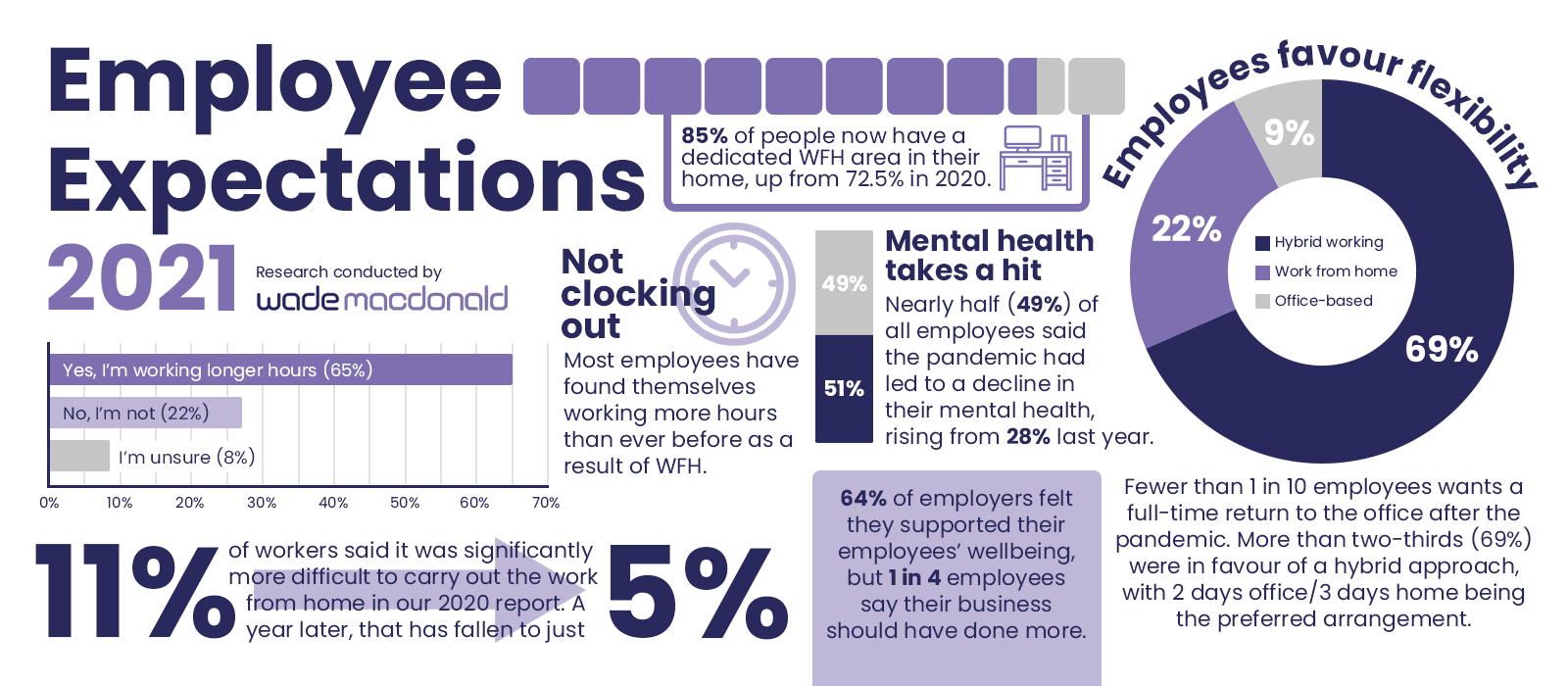A new report shows that nearly one in five employers have rejected flexible working, much to the frustration of many employees who desire, at least, a hybrid working model post-pandemic. The results of the survey provides a deep dive into the expectations of employees in 2021, and how they have shifted since the start of the pandemic in 2020.
Key findings include:
A more settled remote workforce
Last year, 11 per cent of employees claimed it was a lot harder to work from home whereas now, this number has more than halved (5 per cent). The predominant reasons for this shift include:
- A larger percentage (85 per cent) of employees now having dedicated workspaces compared to last year (72.5 per cent).
- A significant increase in financial support from employers towards proper working equipment (53 per cent now compared to only 37 per cent last year).
The desire to work from home more than in the office
This year sees a higher demand of people wanting to solely work from home, (22 per cent compared to 19.5 per cent in 2020). Of those who want a mixture of home and office working (69 per cent), more days spent at home continues to be the preferred option, with 2 days office / 3 days home being the most popular choice.
A need for better mental health support
In Wade Macdonald’s recent Staff Welfare Survey, 64 per cent of employers felt they had supported their staff’s welfare well. However, the Employee Expectations 2021 report showcased that employees did not share this sentiment. Over a quarter (27 per cent) felt their organisations should have done better.
This disparity has come at a cost. This time last year, 28 per cent of employees said their mental health had declined during the pandemic. This number shot up to nearly half (49 per cent) of employees in the latest report.
Chris Goulding, Managing Director for Wade Macdonald, said: “The COVID-19 pandemic has undoubtedly changed the way people have been living their lives across the world for the past nearly-18 months. People being thrust into home working has led to the increased desire for flexibility, inclusion, collaboration, work-life balance and autonomy.
“The way that leaders manage their staff will have to change, with more emphasis on results garnered than time spent to meet those needs and desires of employees in this ‘new normal’. Employers not willing to at least meet staff halfway must be prepared to see a significant decrease of staff loyalty, employee numbers and brand reputation.”
*Research from Wade Macdonald







